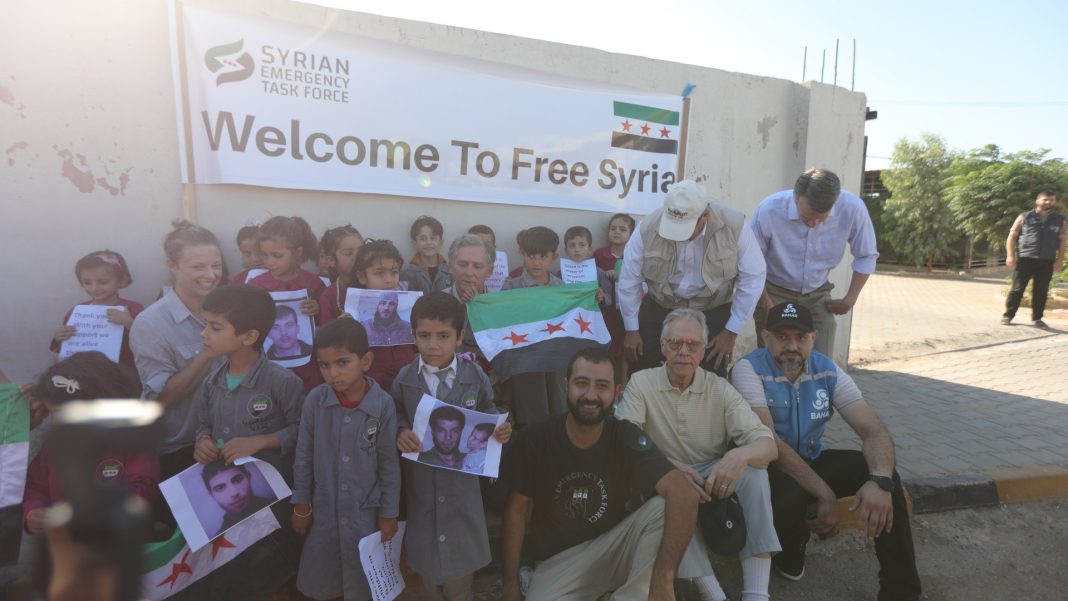The delegation that arrived on Sunday included three members of the US Congress – Ben Cline, Scott Fitzgerald, and French Hill – all members of the US Republican Party.
The Americans entered Syria from Turkey through the Bab al-Salameh border crossing on a visit that lasted about 30 minutes.
“Today, three members of Congress crossed into Syria to renew attention to the ongoing humanitarian catastrophe,” said Celine Kasem, a member of the Washington, DC-based Syrian Emergency Task Force, a political advocacy and humanitarian group, which organised this visit.
Kasem told Al Jazeera that the congressional delegation was greeted by orphaned children from a kindergarten in the northern Aleppo countryside that Congressman Hill’s community in Arkansas has helped support for years. They also met internally displaced Syrians, opposition figures, and aid workers.
The United Nations Office for the Coordination of Humanitarian Affairs (UN-OCHA) estimates the population in northwestern Syria has topped 4.5 million people, with 1.9 million living in displacement camps.
Many Syrians fled to the region during the 12-year war fought between President Bashar al-Assad’s forces and their allies against militant groups.
This marks the first such visit since 2017, when members of Congress went to Syria led by late Senator John McCain – one of the strongest advocates of US military aid for the Syrian opposition during the war.
Last week, the opposition’s “provisional government” announced a meeting in Turkey between its leader Abdurrahman Mustafa and Nicholas Granger, the US State Department envoy to north and east Syria.
Discussions focused on the political, military, and economic situation in areas freed from pro-al-Assad forces.
“The visit of the American delegation today was surprising and unexpected, following a hiatus that lasted years after the cessation of military support to opposition factions in 2017,” stated Riyad al-Khatib, 32, from the city of Mare in the Aleppo governate.
“We need there to be frequent visits to the region, not only by the United States but also by European Union countries to assess the humanitarian situation in the area,” al-Khatib continued.
The US launched measures to support opposition factions in Syria in 2013, but froze those efforts during former President Donald Trump’s tenure in 2017.
Subsequently, military support became limited to the US-backed Syrian Democratic Forces (SDF) located in eastern Syria, which has fought the armed group Daesh in addition to supporting opposition factions near a US base on the Syrian-Jordanian border.
